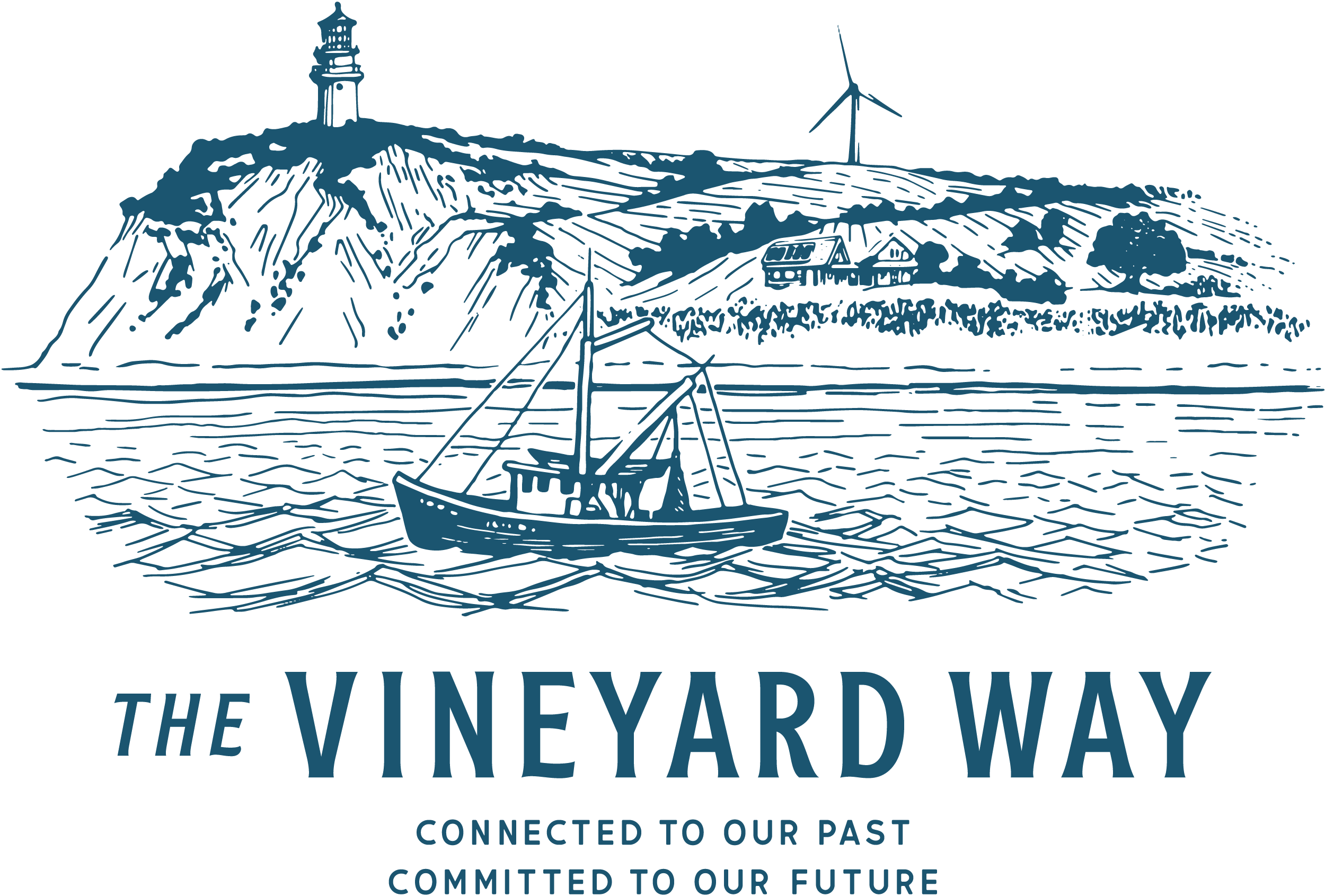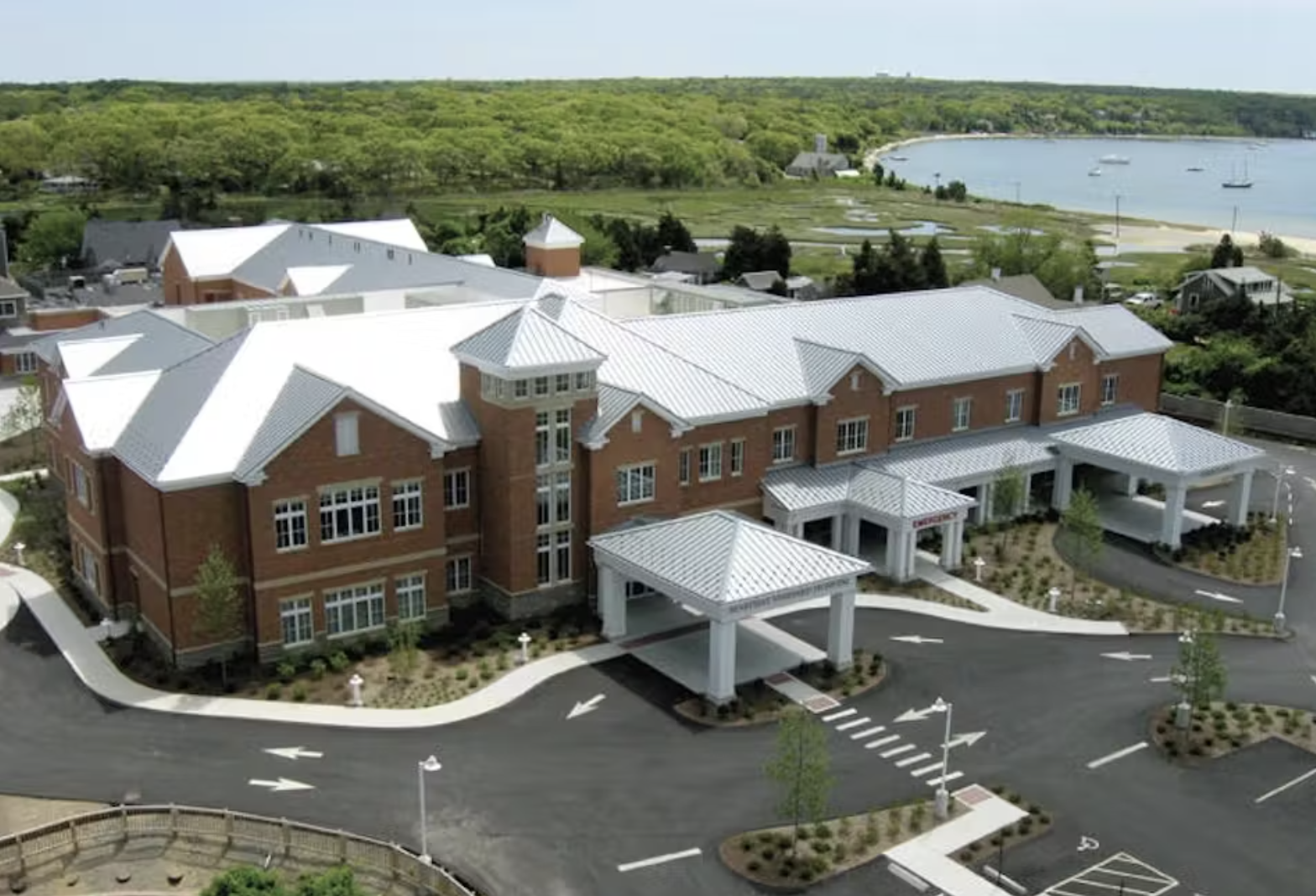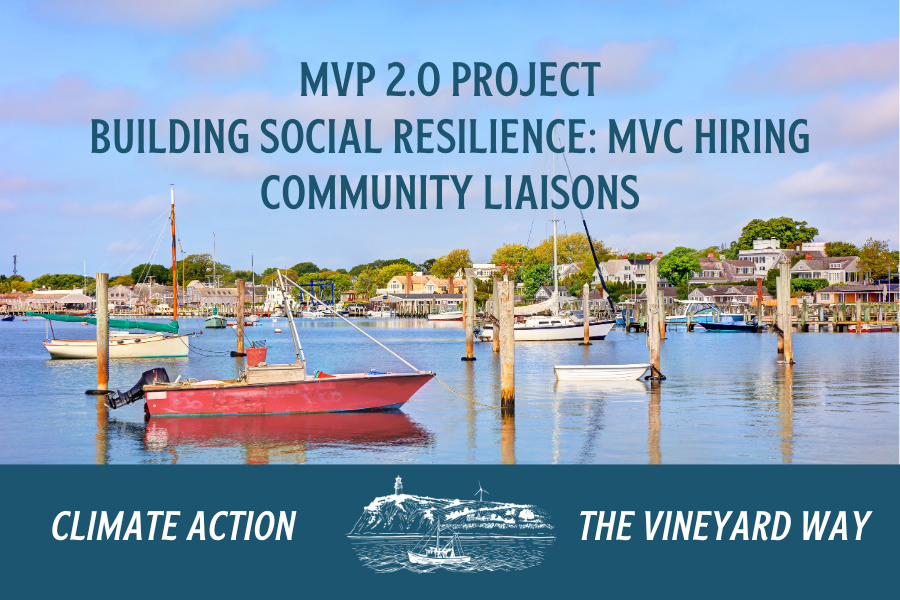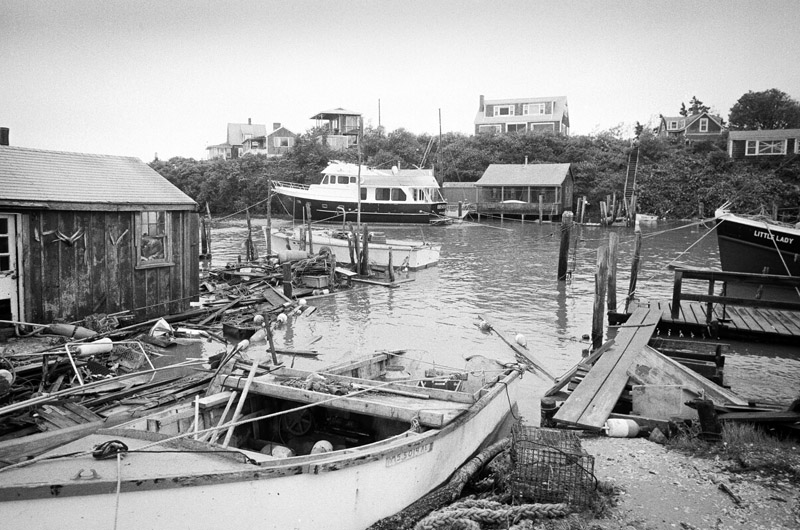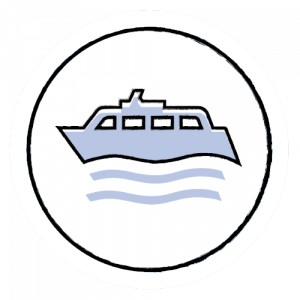
Transportation, Infrastructure, and Waste
Actions in this focus area aim to build more resilient ferry transportation and infrastructure and a reliable supply chain to ensure an adequate flow of goods, materials, and services. Actions also include building self-sufficiency and reducing waste.
Page Links
Transportation, Infrastructure, and Waste Updates
Building Resilience at Martha’s Vineyard Hospital
Building Social Resilience: MVC Hiring Community Liaisons
Hurricane Season Has Begun—Are You Ready?
Ways to Take Action
Challenges
The challenges associated with climate change are vast and varied, and will continue to evolve as climate change progresses. At the time of the Climate Action Plan’s creation, these challenges were at the forefront of the Transportation, Infrastructure, and Waste thematic area.
Road Damage
Supply Chain Disruptions
Tidal Flooding
Critical Facility Loss
Considerations
While climate change is a worldwide phenomenon, there are some aspects that are unique to the Martha’s Vineyard community. These considerations guided the detailed goals, objectives, and actions in the Transportation, Infrastructure, and Waste thematic area.
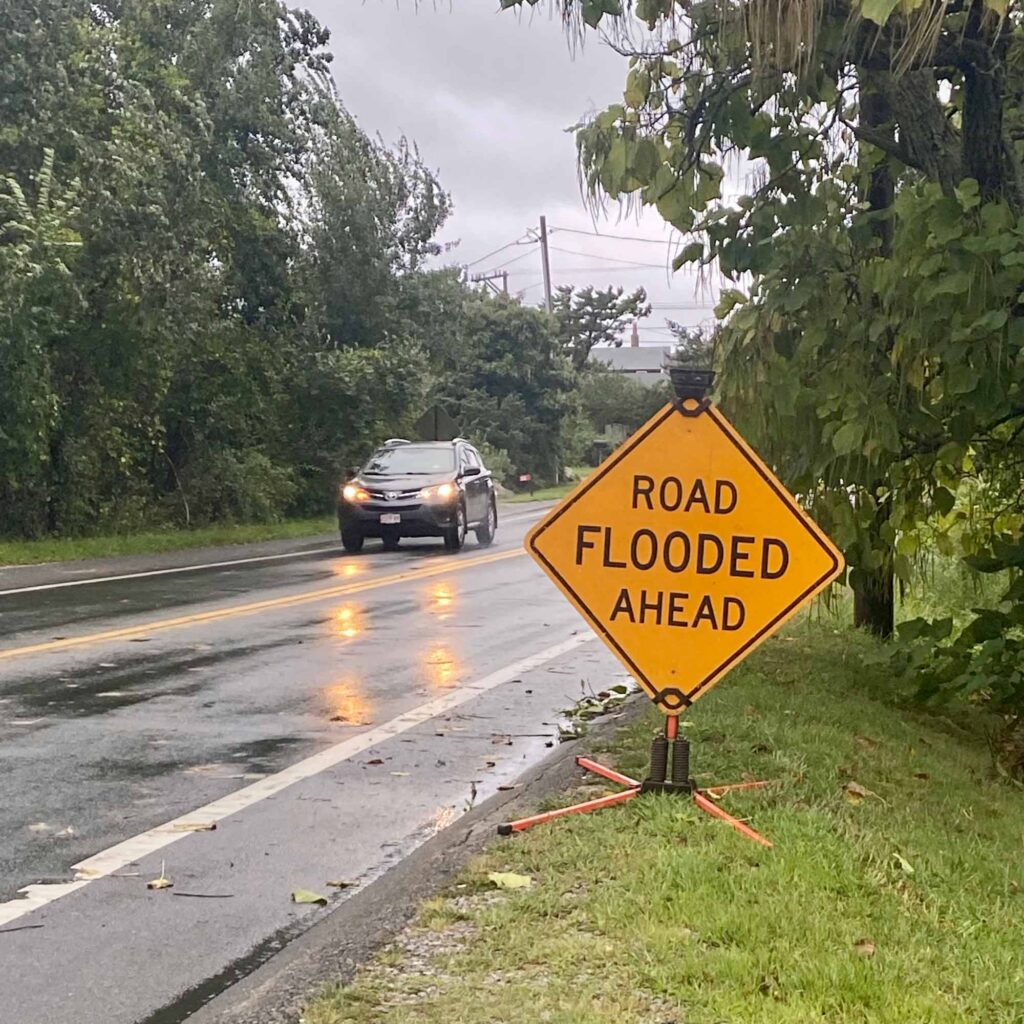
Building Resilient Infrastructure
Making sure that our critical infrastructure – including our roadways, harbor facilities, the hospital, and schools – are safe from climate impacts, like rising sea level and storms, is essential. In some cases, this may mean relocating infrastructure or facilities to areas that are less vulnerable, and in other cases we can take action to make this infrastructure more resilient.
Did you know? Recent improvements to the fixed piers and platforms at the Steamship Authority’s Woods Hole facility were designed to accommodate sea level rise for the fifty-year service life of the project.
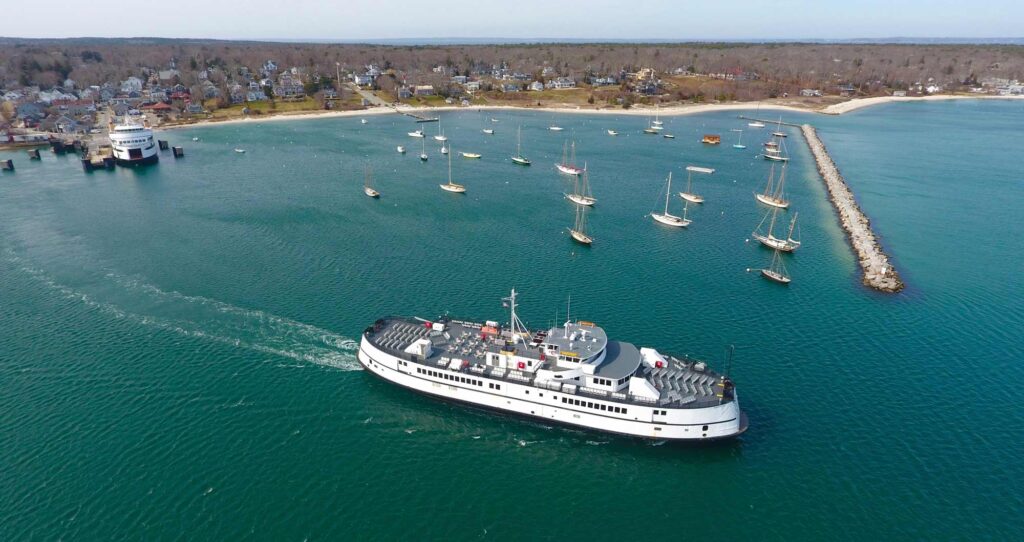
Resilient Supply Chain
The Steamship Authority is the lifeline to the Island carrying goods, materials, and services we rely on daily. Between 2018 and 2020 there were over 1700 boat cancellations due to weather. Extreme weather will get worse with climate change. Actions in this plan are aimed at understanding our supply chain vulnerabilities and identifying key actions to ensure essential goods and service are consistently available including in times of emergencies.
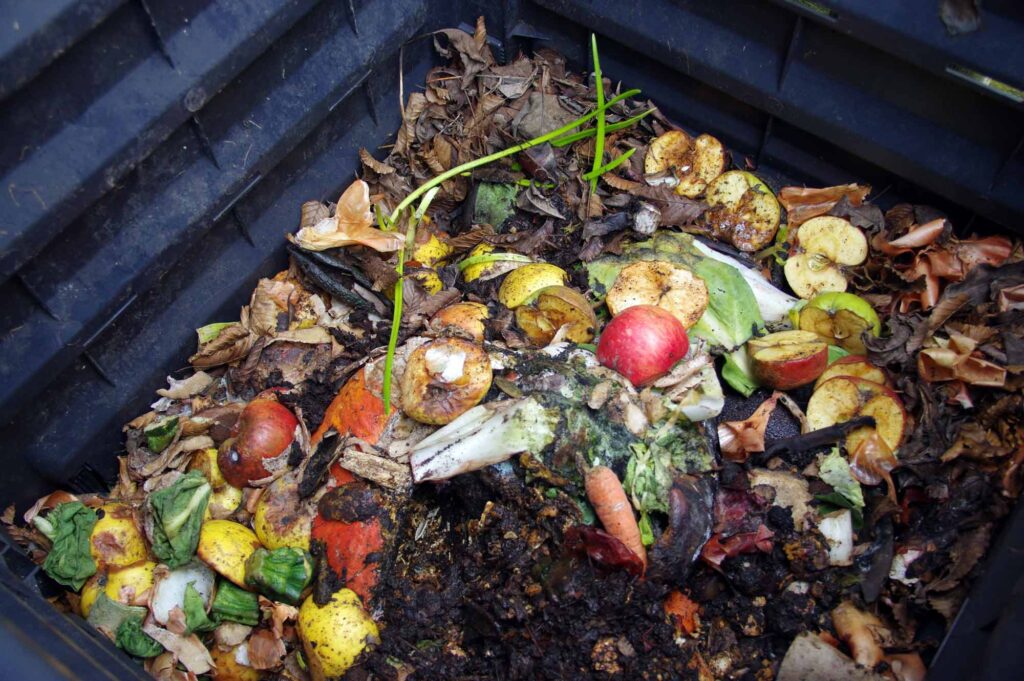
Reducing Waste
Living on the Island means we have to do some things differently. That includes getting rid of waste! Between 2020 and 2040, it would cost $19.4 million dollars to export the average food waste we produce every year (some 6,500 tons) off the Island.
By supporting on-Island composting, and reducing the amount of food waste we generate, we can save money and supply compost for local food production.
In addition to minimizing wasted food, we can also support a self-sufficient Island economy that re-uses materials and limits the importing of single-use items.
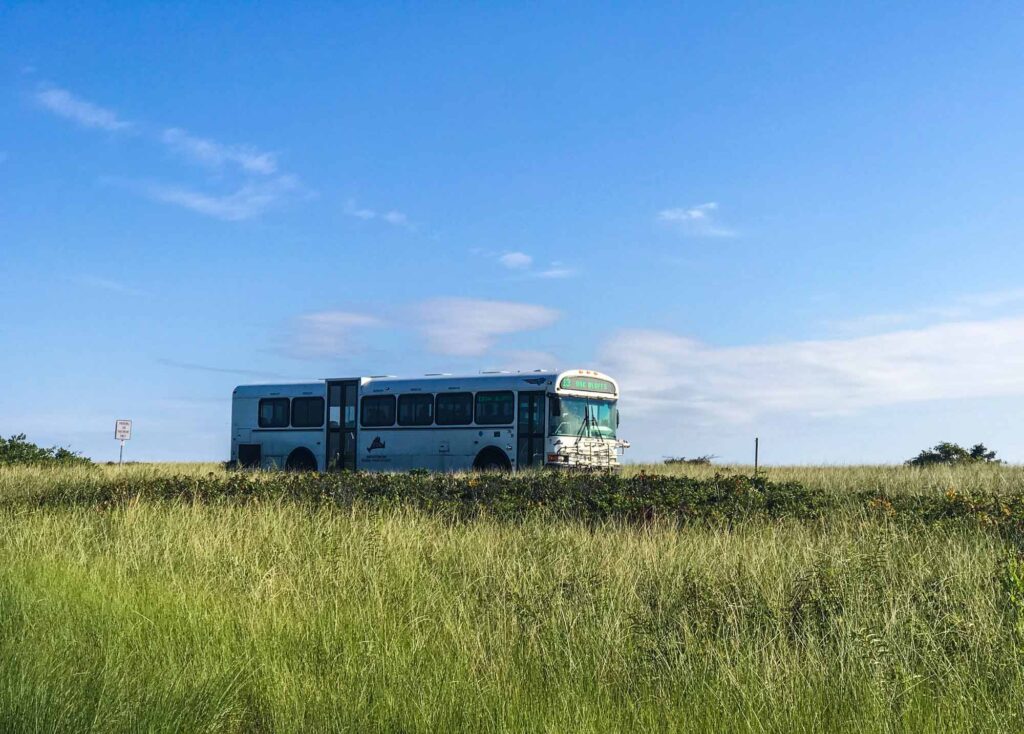
Enhancing Community Resilience
Equity Considerations
Older residents and people with existing health concerns may be disproportionately impacted by transportation and infrastructure disruptions. This plan seeks to improve the resilience of our critical transportation and infrastructure which will improve resilience of these vulnerable populations. This includes improving access to the Martha’s Vineyard Hospital during storm events, improving the supply chain to ensure the availability of medical supplies such prescriptions during and after storm events, more resilient ferry service to ensure consistent access on and off-Island, and an improved communications infrastructure.
Transportation, Infrastructure, and Waste Goals and Action Plan
Awaiting Resources
In Progress
Complete
Goal 1
By 2040, critical vulnerable roads and infrastructure are protected or relocated through a network that prioritizes alternative transportation and green infrastructure.
Objective 1
By 2026, identify, evaluate, and prioritize an Island-wide network of transportation and infrastructure assets and vulnerbilities that are important to support a thriving Island community. (Some actions support Overarching Goal 1.)
Action 1.1
Develop a regional protocol for town by town assessments.
2023
Action 1.2
Establish Island-wide community values in the face of climate change to guide town by town assessments.
2023
Action 1.3
Complete town by town assessments of infrastructure assets and vulnerabilities.
2024
Action 1.4
With other working groups, develop a collaborative long-term vision and land use decision-making framework that builds environmental and socioeconomic resilience.
2025
Objective 2
By 2026, design climate-resilient and regional transportation and infrastructure networks including ports and airports, greener (non-fossil fuel) transportation options, and no regret measures.
Action 2.1
Develop near-term no regret measures for roads and infrastructure.
2025
Action 2.2
Assess carrying capacity of inland transportation routes and potential for new connectors.
2026
Action 2.3
Design complete streets system with an emphasis on walking, biking, ride shares, and public transit.
2026
Action 2.4
Reimagine vulnerable roads, plan for, and fund, sustainable longer term solutions.
2026
Objective 3
By 2030, a model climate change assessment protocal is in use by which new road and infrastructure investments are made with an emphasis on green infrastructure.
Action 3.1
Develop a pilot near-term green infrastructure project to help inform protocol.
2024
Action 3.2
Develop a protocol to assesses climate impacts on roads and infrastructure and propose measures to minimize the impacts.
2025
Action 3.3
Identify key locations and funding sources for purchase of land to provide stormwater management and flood control.
2026
Objective 4
By 2027, increase collaboration between the SSA and MVC to improve communication and implementation of actions that build resilience of our ports.
Action 4.1
An MVC liaison attends monthly SSA board meetings to learn of and update MVC on SSA climate-related matters.
2022
Action 4.2
Support identification of grant opportunities to build port infrastructure resilience and develop collaborative proposals.
Ongoing
Action 4.3
Complete a study to determine how to maintain viability of the Oak Bluffs port.
TBD
Action 4.4
A climate-focused liaison attends the Long Range Planning and Transportation Group meetings to share climate related updates.
2022
Action 4.5
Communicate existing efforts to build SSA resilience with the broader public through CAP/ICAN communications.
Ongoing
Goal 2
By 2040, a long-term resiliency plan for our supply chain is being implemented to ensure an adequate flow of goods, materials, and services needed.
Objective 1
By 2030, maintain reliable access and service around the following areas: 1) Material and Energy (including areas that reduce dependency), 2) People and Services, 3) Communication and Information.
Action 1.1
Establish three supply chain working groups: 1) Material and Energy, 2) People and Services, 3) Communication and Information.
2023
Action 1.2
Complete climate change and supply chain studies to guide emergency response and Island-wide planning.
2024
Action 1.3
Develop resilience plans to promote local production and minimize importing of materials.
2025
Action 1.4
Implement projects that address priorities.
Ongoing beyond 2025
Goal 3
By 2040, a model of Island self-sufficiency has been adopted to reduce solid waste and promote local production, re-purposing, and sharing of goods and materials.
Objective 1
By 2030 build the composting infrastructure and operating systems necessary to help all Island commercial establishments comply with the Mass DEP food waste bans and develop programs to maximize food waste capture from all Island producers (residential and commercial).
Action 1.1
Upgrade the pilot project drum composting system at Island Grown Initiative.
2024
Action 1.2
Add one to three additional drum composting facilities to handle maximum amount of food waste.
2030
Objective 2
By 2030, develop a system and infrastructure to redirect the maximum amount of Construction and Demolition waste from off-Island disposal to on Island recycling, repurposing, repair, or resale.
Action 2.1
Identify best practices for demolition and construction waste and create a network to connect stakeholders and markets.
2025
Action 2.2
Run pilot programs assessing the viability of redirecting demolition and construction waste for on-Island use.
2026
Objective 3
By 2027, build a comprehensive analysis of all aspects of Island waste, the generators of each category of waste, and potential alternate uses of wastes locally and regionally.
Action 3.1
Identify existing examples and establish a network to expand the amount of waste diverted from off-Island disposal.
2024
Action 3.2
Perform an extensive waste characterization study and document past and present disposal methods, costs, etc.
2024
Thematic Working Group Members
Liaison
Juliet Mulinare
Jim Malkin
Angela Gompert
Adele Anderson
Isaac Taylor
Cindra Trish
Mike Biros
John Cahill
Allen Carney
Geoff Freeman
Bill Veno
Alec Sargent
Dan Doyle
Marcene Mitchell
Jonathan Harris
John Cahill
Annabelle Brothers
Joe Sollitto
Matt Merry
Bob Davis
Matthijs Bouw
Rebecca Haag
Woody Filly
